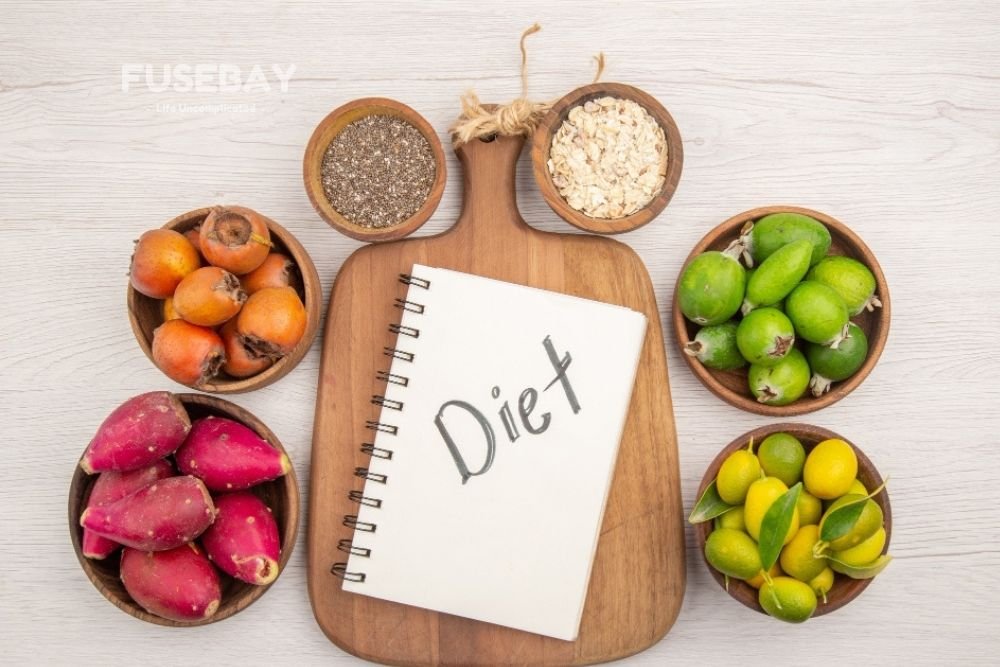Crafting the Best Diet for Digestive Issues:
Digestive health is the cornerstone of overall well-being. It affects energy levels, immune response, mental clarity, and more. Many people face challenges like bloating, constipation, acid reflux, or irritable bowel syndrome (IBS), which can interfere with daily life. While medical treatments are available, diet remains a powerful tool to manage and often resolve these issues. In this guide, we’ll explore in-depth strategies for creating the best diet for digestive issues, providing actionable steps and evidence-based recommendations to restore and maintain gut health.
The Importance of Digestive Health
Your digestive system does more than just process food; it plays a pivotal role in nutrient absorption, detoxification, and supporting immunity. Poor digestion can lead to nutrient deficiencies, fatigue, and chronic illnesses. Recognizing the root causes of digestive problems—dietary habits, stress, or underlying conditions—is the first step toward effective management.
The best diet for digestive issues is crucial for reducing symptoms like bloating, acid reflux, and IBS. Fiber-rich foods promote regular bowel movements and support gut health, while probiotics help balance beneficial bacteria. Avoiding trigger foods like dairy and processed items can prevent discomfort. Staying hydrated and practicing mindful eating also enhance digestion, contributing to overall well-being. Following the right diet improves nutrient absorption and reduces digestive discomfort.

Key Principles of a Digestive-Friendly Diet
Adopting a gut-friendly diet involves understanding the role of different food groups and how they interact with the digestive system. Here are the fundamental principles:
1. Emphasize High-Fiber Foods
Fiber is crucial for promoting regular bowel movements and fostering a healthy gut microbiome. There are two types of fiber to include in your diet:
- Soluble Fiber: Helps regulate bowel movements by absorbing water and forming a gel-like consistency. Sources include oats, apples, citrus fruits, and legumes.
- Insoluble Fiber: Adds bulk to stool and prevents constipation. Found in whole grains, nuts, and vegetables like broccoli and carrots.
2. Incorporate Probiotics and Prebiotics
Probiotics are beneficial bacteria that enhance gut health, while prebiotics act as food for these microbes. Together, they promote a balanced microbiome.
- Probiotic-Rich Foods: Yogurt with live cultures, kefir, kimchi, sauerkraut, and miso.
- Prebiotic Foods: Garlic, onions, bananas, asparagus, and artichokes.
3. Stay Hydrated & Minimize Irritants
Staying hydrated aids digestion by helping food move smoothly through the digestive tract. Herbal teas, clear soups, and water with a splash of lemon are excellent choices.
Certain foods can irritate the digestive system, particularly in individuals with sensitivities or chronic conditions. Reducing or eliminating these foods can provide significant relief.

Foods to Prioritize
1. Gentle Fruits and Vegetables
Fruits and vegetables are essential for their fiber and nutrient content, but some may be easier on the digestive system than others.
- Best Choices: Bananas, papayas, cooked carrots, zucchini, and spinach.
- Cooking Tip: Light steaming or baking makes vegetables easier to digest.
2. Lean Proteins & Healthy Fats
Protein is essential for repair and overall health, but fatty or heavily processed options can be hard on the stomach.
Omega-3 fatty acids and unsaturated fats reduce inflammation and promote gut health.
- Best Sources: Skinless poultry, fish, eggs, tofu, and legumes.
- Examples: Avocados, olive oil, nuts, seeds, and fatty fish like salmon.
3. Whole Grains & Fermented Foods
Whole grains provide insoluble fiber, essential for keeping the digestive system moving.
Fermented foods contain natural probiotics that balance gut bacteria.
- Options Include: Brown rice, quinoa, oatmeal, and whole-grain bread.
- Top Picks: Kimchi, kombucha, yogurt, and tempeh.

Foods to Avoid
1. Processed and Packaged Foods
These foods often contain artificial additives, preservatives, and unhealthy fats that can disrupt digestion.
2. Fried and Greasy Foods
High-fat foods are difficult to digest and can slow down the digestive process, leading to bloating and discomfort.
3. Spicy Foods & Dairy Products
For individuals prone to acid reflux or heartburn, spicy foods can exacerbate symptoms.
Lactose, found in milk and dairy, can cause bloating, gas, and diarrhea in people with lactose intolerance.

Dietary Strategies for Common Digestive Issues
1. Managing IBS & Acid Reflux
For those with IBS, a low-FODMAP diet can reduce symptoms by eliminating specific fermentable carbohydrates. Acid reflux sufferers should avoid acidic, spicy, and fried foods. Opt for bland, low-fat meals.
Low-FODMAP Foods: Zucchini, cucumber, spinach, rice, and lean proteins.
Good Options: Oatmeal, bananas, and lean chicken.
2. Relieving Constipation
Focus on increasing fiber intake gradually while staying hydrated.
Top Foods: Whole grains, beans, chia seeds, and fruits like pears and prunes.
3. Reducing Bloating
Bloating can be minimized by avoiding carbonated drinks and eating smaller, more frequent meals.
Best Choices: Ginger tea, cucumber, and yogurt.
Sample Meal Plan for Digestive Health
Breakfast
- Warm oatmeal with sliced bananas and a sprinkle of flaxseeds.
- Herbal tea, such as chamomile or peppermint.
- A small bowl of Greek yogurt topped with fresh blueberries and honey.
Lunch
- Grilled salmon with quinoa and steamed green beans.
- A side of mixed greens with olive oil and lemon dressing.
Dinner
- Baked chicken breast with roasted sweet potatoes and sautéed spinach.
- A soothing cup of ginger tea.

Lifestyle Tips for Better Digestion
1. Practice Mindful Eating
- Chew food thoroughly to aid digestion.
- Avoid distractions during meals to focus on proper chewing and portion control.
2. Regular Physical Activity
Exercise stimulates intestinal muscles and promotes regular bowel movements. Activities like walking, yoga, and light aerobics are particularly beneficial.
3. Stress & Sleep Management
Chronic stress can disrupt the gut-brain connection, leading to digestive issues. Incorporate stress-relief practices such as deep breathing, meditation, or tai chi. Quality sleep allows the digestive system to repair and function optimally. Aim for 7–9 hours per night.
Avoid Late-Night Eating & Monitoring Progress
Eating close to bedtime can disrupt digestion and exacerbate issues like acid reflux.
Keeping a food and symptom diary can help identify triggers and track improvements. Document:
- Foods eaten.
- Timing and severity of symptoms.
- Physical activity and hydration levels.
Conclusion
In conclusion, adopting the best diet for digestive issues involves incorporating high-fiber foods, probiotics, and prebiotics while avoiding irritants like processed foods, dairy, and artificial sweeteners. By focusing on whole grains, lean proteins, and fermented foods, individuals can manage common digestive problems such as bloating, acid reflux, and IBS effectively. Staying hydrated, practicing mindful eating, and reducing stress further enhance digestive health. Consistency in following these dietary principles leads to improved gut function, nutrient absorption, and overall well-being.
Discover amazing information and unique finds on FuseBay! Don’t miss out—visit our website for exclusive articles and top-notch blogs tailored just for you!







